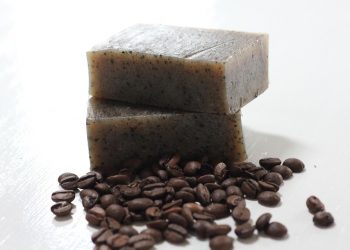You might have heard about chicory root before, perhaps as a coffee substitute or an ingredient in a trendy health drink. But did you know that it can also play a pivotal role in enhancing your gut health? If you’re interested in natural ways to support your gut flora, you’re in the right place. Let’s dig into the details and explore how chicory root can be your new best friend for a happier gut.
Contents
What is Chicory Root?
Chicory (Cichorium intybus) is a flowering plant native to Europe and parts of Asia. Its roots are often roasted and used as a coffee alternative, but they also boast an impressive nutritional profile. It’s rich in inulin, a type of prebiotic fiber that serves as food for your beneficial gut bacteria. This is where chicory root starts to shine in the realm of gut health.
1. Rich Source of Prebiotics
One of the standout features of chicory root is its high inulin content. Prebiotics are non-digestible food components that stimulate the growth of beneficial bacteria in the gut.
How It Works:
When you consume chicory root, the inulin passes through your digestive tract and reaches the colon, where it gets fermented by gut bacteria. This fermentation process leads to the production of short-chain fatty acids (SCFAs), which are vital for maintaining gut health.
Pros:
- Supports Healthy Bacteria: By feeding good bacteria, inulin helps maintain a balanced gut flora, which is crucial for digestion and overall health.
- May Reduce Inflammation: Some studies suggest that SCFAs can help reduce inflammation in the gut, promoting a healthier digestive system.
Caveats:
- Gas and Bloating: Some people may experience gas or bloating when they first introduce chicory root into their diet. It’s best to start with small amounts and gradually increase.
2. Enhances Digestive Health
Another major benefit of chicory root is its ability to enhance digestive health. The fiber in chicory root can help regulate bowel movements and alleviate digestive issues.
How It Works:
Chicory root acts as a bulk-forming laxative, which means it absorbs water and adds bulk to your stool. This can help prevent constipation and promote regularity.
Pros:
- Improves Bowel Movements: Regular consumption can lead to more frequent and comfortable bowel movements.
- May Help with Diarrhea: Interestingly, the soluble fiber in chicory can also help thicken stool in cases of diarrhea.
Caveats:
- Allergic Reactions: Although rare, some people may be allergic to chicory. If you notice any unusual symptoms after consuming it, consult a healthcare provider.
3. May Help Manage Weight
If you’re looking to maintain or lose weight, chicory root could be a helpful ally. The fiber content not only aids digestion but also promotes satiety.
How It Works:
The inulin in chicory root may help you feel fuller for longer, which can reduce overall calorie intake. Plus, when your gut flora is healthy, it supports better metabolism.
Pros:
- Promotes Satiety: Feeling full after a meal can help curb snacking and unnecessary calorie consumption.
- Supports Healthy Metabolism: A balanced gut microbiome can positively influence how your body processes and stores fat.
Caveats:
- Not a Magic Solution: While chicory root can support weight management, it’s essential to combine it with a balanced diet and regular exercise for effective results.
4. Supports Immune Function
Did you know that a significant portion of your immune system is housed in your gut? Chicory root can help bolster your immune function by promoting a healthy gut microbiome.
How It Works:
A healthy gut flora helps defend against pathogens and supports the overall immune response. The SCFAs produced during the fermentation of inulin can also play a role in immune regulation.
Pros:
- Enhanced Immune Response: A balanced gut microbiome can lead to a more effective response to infections and illnesses.
- May Reduce Allergies: Some research suggests that a healthy gut may help reduce the risk of developing allergies.
Caveats:
- Research is Ongoing: While the link between gut health and immunity is well-established, individual results can vary, and more research is needed.
5. May Improve Mental Health
The gut-brain axis is a fascinating area of study, illustrating the connection between gut health and mental well-being. Interestingly, chicory root may have beneficial effects on this connection.
How It Works:
Gut bacteria produce neurotransmitters, such as serotonin, which play crucial roles in regulating mood. By supporting healthy gut flora, chicory root could contribute to improved mental health.
Pros:
- Potential Mood Enhancer: Some studies indicate that a healthy gut microbiome may help reduce symptoms of anxiety and depression.
- Stress Reduction: A balanced gut can help mitigate the physiological effects of stress, promoting overall mental well-being.
Caveats:
- Individual Variation: Mental health is complex and influenced by numerous factors. While gut health plays a role, it’s not a standalone solution.
FAQs
1. How can I incorporate chicory root into my diet?
You can find chicory root in various forms, such as ground powder, tea, or supplements. Try adding it to smoothies, baked goods, or as a coffee substitute.
2. Are there side effects to consuming chicory root?
Some people may experience gas, bloating, or allergic reactions. It’s best to start with small amounts and consult with a healthcare provider if you have concerns.
3. Can chicory root help with constipation?
Yes, the fiber in chicory root can promote regularity by adding bulk to your stool and supporting healthy bowel movements.
4. Is chicory root suitable for everyone?
While generally safe, individuals with allergies or certain digestive conditions should consult their healthcare provider before consuming chicory root.
Conclusion
Chicory root is more than just a trendy ingredient; it’s a powerhouse for gut health. With its prebiotic properties, digestive benefits, and potential role in boosting immunity and mental well-being, it’s worth considering incorporating chicory root into your diet.
As always, remember that while chicory root can offer numerous benefits, it’s essential to maintain a balanced diet and consult a healthcare provider for personalized advice.
This article is for educational purposes only and is not a substitute for professional medical advice. Always consult a qualified healthcare provider before making changes to your health routine.
References
- Slavin, J. (2013). “Fiber and Prebiotics: Mechanisms and Health Benefits.” Nutrients, 5(4), 1417-1435. https://doi.org/10.3390/nu5041417
- Mayo Clinic. (2021). “Gut health: What is it and how to maintain it.” https://www.mayoclinic.org/health-information/digestive-health/gut-health
- National Institutes of Health. (2020). “The Gut-Brain Connection: How Your Gut Affects Your Mental Health.” https://www.nih.gov/news-events/nih-research-matters/gut-brain-connection
Get Your FREE Natural Health Guide!
Subscribe now and receive our exclusive ebook packed with natural health tips, practical wellness advice, and easy lifestyle changes — delivered straight to your inbox.














